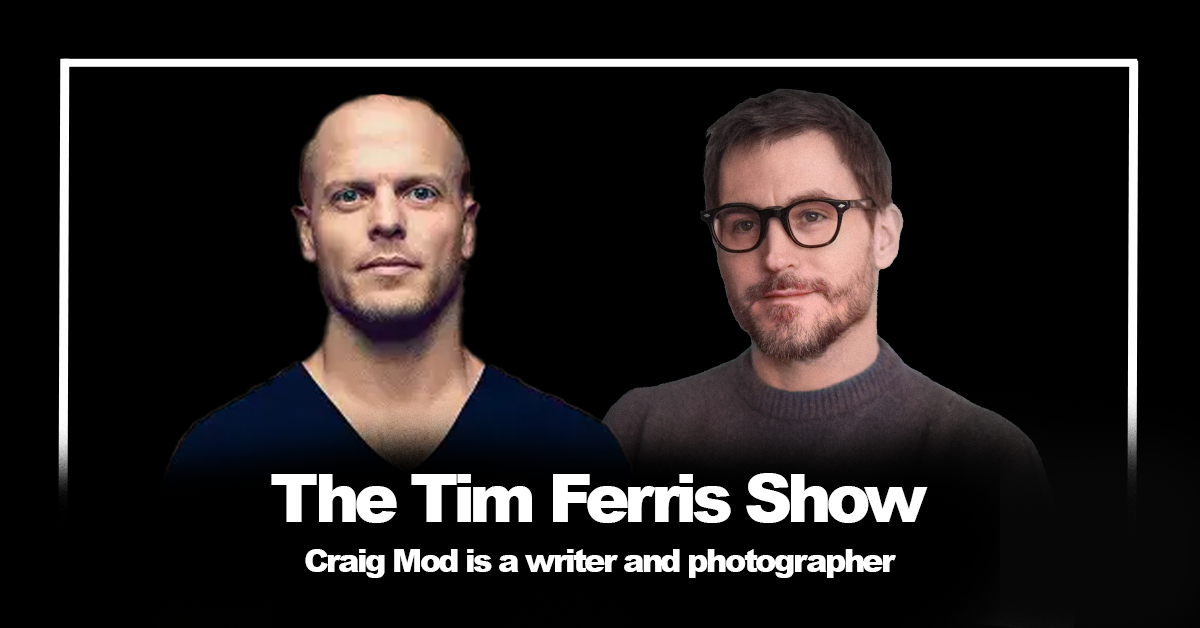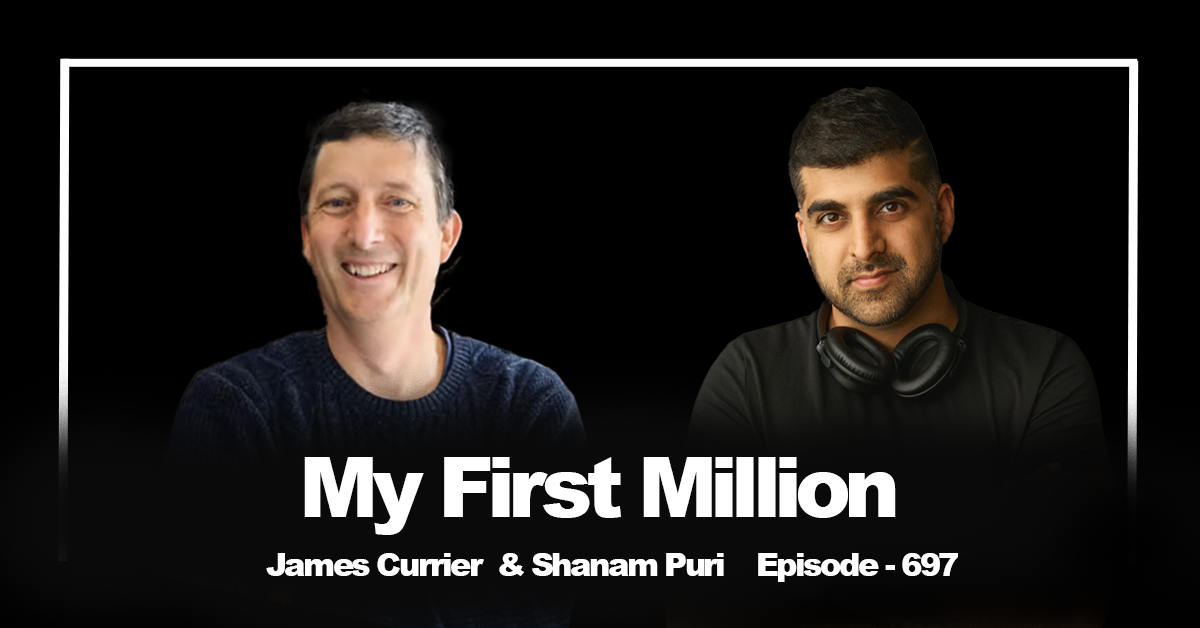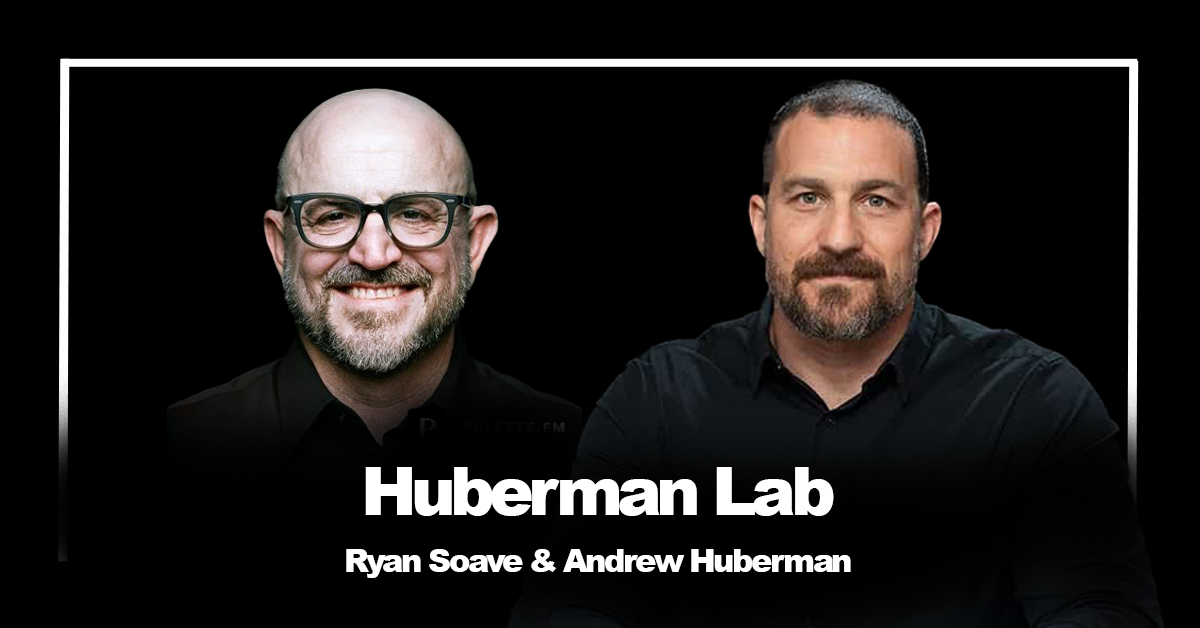Get ready for a journey, both literal and metaphorical. This episode features Craig Mod, a writer, photographer, publisher, and walker known for his deep dives into Japanese culture, technology’s impact on publishing, and the practice of long-distance walking.
This conversation meanders through Craig’s fascinating life, from his early days discovering computers and design in small-town Connecticut to his decades living and working in Japan, his experiences in Silicon Valley, and the profound impact of his epic walks. It’s a rich exploration of creativity, finding purpose, cultivating aestheticism, and the power of committing to your craft.
If you’re interested in writing, creative process, Japanese culture, the future of books, or just living a more intentional life, this is packed with insights.
Here are the detailed key insights and lessons learned:
1. Early Life & Formative Experiences:
- Finding the Cracks: Craig grew up in a culturally “desert”-like post-industrial town in Connecticut. Video games (from Japan) and early computers (thanks to a kind neighbor) were his first windows into a wider world and potential escape routes.
- Early Internet & Design: Got deeply involved in the early internet scene (IRC, PPP emulators, ANSI art) as a young teen (12-13). This sparked a passion for design, storytelling through digital mediums, and connected him with older creatives, mostly in California.
- Seeing Opportunity: Recognized early on (age 14 using Mosaic) the potential of the web and that mastering these skills offered a path to making a living differently than anyone in his town. Opened an E*Trade account at 19.
- Lack of Archetypes: Grew up without clear models for generating wealth or engaging culturally. Pop culture (like Lifestyles of the Rich and Famous) became default, distant archetypes. This fueled a drive to find his own way and escape perceived limitations.
- Need for Independence: Developed a strong, almost “pathological” need for independence and security from a young age, partly stemming from a feeling of not being supported by the “American system.”
2. Japan: Finding a Foothold & Navigating Identity
- Initial Move (Age 19): Moved to Japan initially for a year of university study, attracted by the affordability and opportunity for a fresh start. Bounced off the privilege and resources he encountered briefly at UPenn.
- Silicon Valley Bubble Burst: While he was in Japan, the first dot-com bubble burst, altering his initial plans.
- Language Learning: Immersed himself by living with a host family (a “bonkers” but formative experience with flying cockroaches and a masturbating 11-year-old roommate), joining the university music circle, and constantly listening and engaging, leveraging his musical ear. He found learning easier with peers slightly ahead of him.
- The “Stranger” Identity: As an adoptee who felt disconnected, living in Japan offered a strange “safety.” As a perpetual foreigner (“gaijin”), he could never be fully integrated, but also could never be fully rejected or “thrown away,” providing a sense of stability.
- Cost of Living & Creative Freedom: Tokyo’s surprisingly low cost of living in his 20s ($1000/month covered rent/food/entertainment) allowed him to live pathologically below his means and focus uncompromisingly on creative work (book design, programming experiments) without financial pressure.
3. Silicon Valley & The Literary World:
- Flipboard: Joined the beautifully designed social magazine app Flipboard early on (employee #8/9) after his influential essay “Books in the Age of the iPad” gained traction. This exposed him to brilliant minds and the intensity of Silicon Valley.
- The Paycheck Trap: Earned a significant salary ($30k/month) at Flipboard but felt his literary/writing side couldn’t be compromised. He saw the high income as a potential trap changing his “chemistry.”
- Maintaining Creative Integrity: To counteract the pull of the paycheck, he adopted a militant writing routine, booking hotels in San Francisco every weekend to write essays on digital books and publishing, forcing himself to protect his core creative drive.
- McDowell Residency: Applied for and got into the prestigious McDowell writing residency in New Hampshire on a whim after encouragement from Liz Danzigo. This experience, surrounded by high-caliber artists, was profoundly validating and set new archetypes for “serious art.” It provided the impetus to leave Flipboard.
4. Walking as Practice, Writing as Discovery:
- Annapurna & Sobriety: A difficult breakup and struggles with alcohol in his late 20s culminated in a transformative trek to Annapurna base camp in Nepal (2009). This marked a turning point, beginning his journey toward sobriety and a deeper commitment to running and physical discipline.
- Giving Form to Experience: The Annapurna trip sparked a need to write about the experience and the camera he used. This resulted in a highly successful, long-form camera review (“Panasonic GF1 Field Test”) that blended design, tech, and personal narrative, setting a template for future work.
- Walking as Commitment: The big walks (like the 600km Kii Peninsula walk during COVID) became his primary creative practice. Walking provides the structure, the encounters, and the mental space for writing and reflection.
- Writing Routine on Walks: Writes 2,000-4,000 words daily while walking, capturing observations and reflections. This disciplined output forms the raw material for his books.
- “Things Become Other Things”: His upcoming book (May 6th, Random House) emerged from his COVID walk on the Kii Peninsula, meditating on a childhood friendship tragically cut short and exploring themes of systems failing individuals, memory, and finding connection in unlikely places.
5. Philosophy of Creativity & Learning:
- Aestheticism & Uncompromising Work: Craig cultivates a deep commitment to quality and aesthetic integrity in his work (beautiful physical books, fine art editions), rejecting ephemeral content creation. He believes this pursuit of immutable quality is essential.
- Immutable Objects: Values physical books and rereading classics (Annie Dillard’s Pilgrim at Tinker Creek, Dennis Johnson’s Train Dreams) as anchors against digital ephemerality. Rereading offers a relationship over decades.
- Finding Value & Self-Worth: His journey involved a slow, “creaking” process of recognizing his own value, often spurred by external validation (awards, meeting heroes like Kevin Kelly, the success of articles) that countered deep-seated imposter syndrome.
- Leaning into Discomfort: Emphasizes the importance of getting offline, turning off notifications, and embracing the “immutable” and sometimes difficult process of deep creative work.
- Artist Residencies: Strongly advocates for artists residencies (McDowell, VCCA, Tin House, Ragdale) as invaluable, often overlooked opportunities for focused work, community, and creative growth.
Final Thought:
Craig Mod’s story is a testament to the power of following curiosity, embracing discomfort, and committing uncompromisingly to a chosen craft. His journey highlights how seemingly disparate paths – technology, design, writing, walking, Japan – can converge into a unique and meaningful whole. His emphasis on aestheticism, deep work, and finding connection through shared experience offers a powerful antidote to the often-shallow currents of modern digital life.
Find Craig’s work and membership program at craigmod.com.
Until next time,
The Podcast Notes Team





